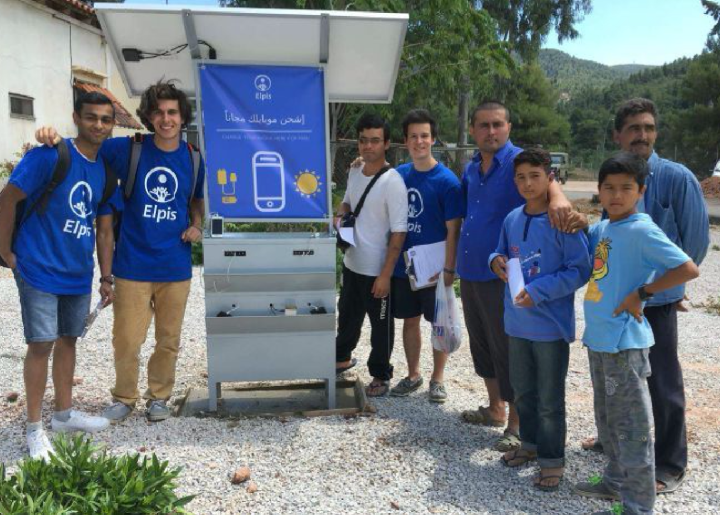
Already, the university team has installed two units in refugee camps, each of which is capable of generating electricity for 12 plugs every hour. Using nothing but solar energy, it is estimated that 240 people can use the unit each and every day. And if there’s one thing Greece has plenty of, it’s sunlight.
20-year-old Alexandros Angelopoulos, one of the team members responsible for the innovation, came up with the idea after he visited the island of Samos last summer. The island is a key destination for almost one million refugees looking for a new start in Europe. He found that many of these displaced people were dependent upon mobile devices to communicate with family members in their home countries and to plan their upcoming journeys.
“People started asking for my phone to call family and to use the internet,” Angelopoulos told Reuters. With limited access to electricity, many of these individuals were unable to complete even the most basic of tasks.
“We just wanted to make a positive contribution to local communities through renewable energy,” team co-member Samuel Kellerhals added.
So together, they developed Project Elpis (the Greek word for “hope”), and alongside Greek solar company Entec, were able to implement their green solutions in a refugee camp.
“Initially it was quite difficult. Everything in Greece is quite bureaucratic,” Angelopoulos said. But now, things appear to be moving more quickly. Another three units are currently in progress thanks to capital raised by way of crowdfunding, and the co-founders hope that more are on the way.
Because what better silver lining could there be for the refugee crisis than the sun itself?


